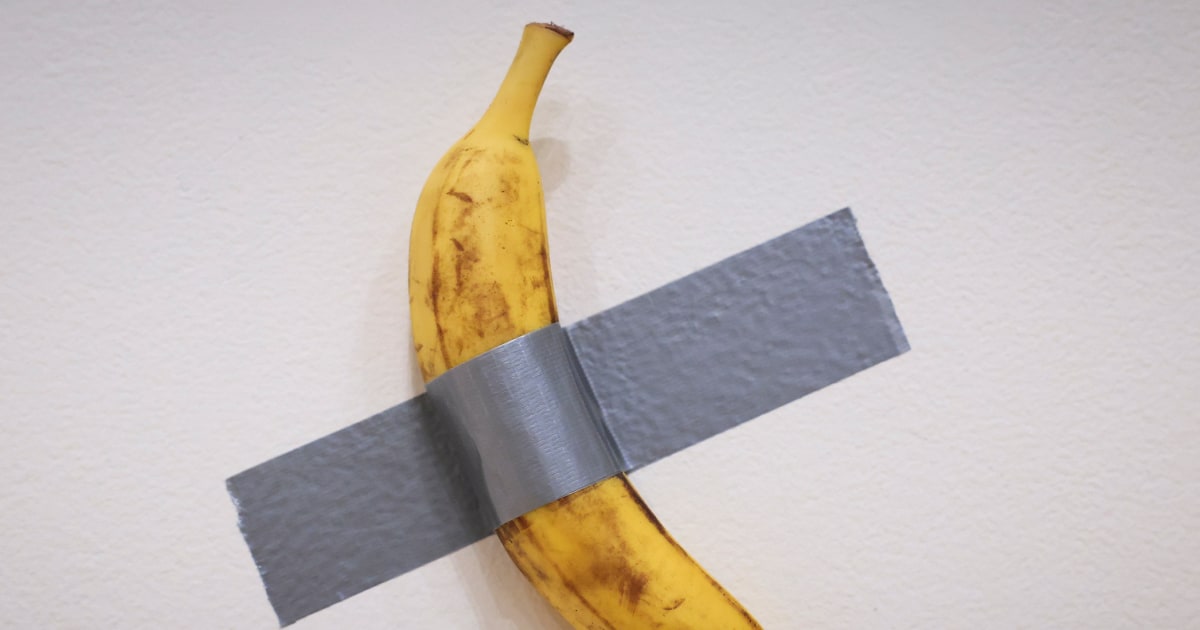Sports
The sports capital of the world? How sports boosted Las Vegas’ growth

Las Vegas is being watched by the Sphere’s creepy eyeball
A creepy dry eye ad on Sphere in Las Vegas appears right in time for spooky season.
Las Vegas is leaning into sports.
There’s a shiny new NFL stadium, which in February hosted the Super Bowl. Annual Formula 1 races across the Strip. UFC fights in the Las Vegas Sphere. Arenas hosting NHL and WNBA teams.
All told, Las Vegas has added three major league sports teams in the past decade – two of which are recent champions. And with the Tropicana implosion planned for early Wednesday, the city plans to add Major League Baseball to the mix with a new ballpark for the Athletics, formerly of Oakland, California.
It’s all part of an effort to reshape Las Vegas into the “sports capital of the world.”
“Historically, there was interest in sports in the community, but we had no hope of major league sports. That was partly from gambling, and partly from our own size,” said Michael Green, a history professor at the University of Nevada, Las Vegas.
But after a population boom and the legalization of sports betting across the U.S., “a lot of pieces are coming together,” Green said.
Sports betting’s role in Las Vegas’ growth
Las Vegas’ relationship with sports has come a long way in the past two decades.
In 2003, the NFL rejected the Las Vegas Convention and Visitors Authority’s bid to run a Super Bowl ad. Nevada was the only state that offered legalized sports betting at the time, and the league cited a clause in its contracts with networks that prohibited gambling-related advertising — despite the submitted ad making no mention of betting.
But by the 2010s, major sports leagues had changed their tunes on Las Vegas and its ties to sports betting. The NHL launched the Vegas Golden Knights in 2017, and NFL owners approved the Raiders’ move from Oakland to Las Vegas in a 31-1 vote that same year.
The shifting sentiment toward sports betting became even more clear in 2018, when a Supreme Court ruling struck down a law that prohibited sports gambling outside of Nevada. Bills legalizing sports betting took off across the country, with advocates promising states a new stream of tax revenue. The four major sports leagues were also told they could make more money, with the American Gaming Association in 2018 releasing a report saying the NFL, MBA, NBA and NHL could earn a collective $4.2 billion per year from widely available sports betting.
Today, 38 states and Washington offer legal sports betting, according to the American Gaming Association, a trade group for the casino industry.
“It is amazing how quickly attitudes have changed around legal, regulated sports betting,” said Becky Harris, a distinguished fellow in gaming and leadership at UNLV.
While some research has shown sports betting’s legalization may have a negative effect on American households – one recent study shows legalized sports betting is tied to increases in credit card debt and overdrafts – the shift has been positive for Las Vegas.
The gambling stigma Las Vegas faced in the early 2000s is “largely a thing of the past,” according to Steve Hill, president and CEO of the LVCVA. He said he doesn’t think Las Vegas would have the sports offerings it does – especially its NCAA events – if that stigma hadn’t faded.
“If (sports gambling) was still confined to a market or two, there would be skepticism,” Hill told USA TODAY. “That skepticism was what was preventing professional sports from coming to Las Vegas. … Without that whole issue being set aside, I think the landscape of Las Vegas would look differently.”
Broadening Las Vegas’ appeal
Casino mogul Derek Stevens saw the potential for sports betting’s growth when designing his downtown resort, Circa.
The property is a sports lovers’ dream, complete with six outdoor pools facing a 40-foot-tall, high-definition screen broadcasting games and a three-story sportsbook.
Circa was designed “before sports betting became legal, but we always thought it would become legal,” Stevens told USA TODAY. “We always thought it made too much sense.”
Vegas had always been a place to watch major sports events like the Super Bowl and Final Four, added Alan Feldman, director of strategic initiatives for UNLV’s International Gaming Institute. Now, sports fans can watch inside the arenas as well as sportsbooks.
“It gives millions and millions of visitors around the country a reason to come to Las Vegas,” he said.
A 2023 survey from the LVCVA found 6% of visitors attended a sporting event during their Las Vegas visit, up from 2% in 2018.
“It has broadened the interest in Las Vegas and actually increased our market,” Hill said. “It’s part of our brand now.”
And the city’s new venues have opened doors for Las Vegas to host other major events. Allegiant Stadium hosts the Raiders’ home games, but visitors also flock to the stadium to watch pop stars like Beyoncé and Taylor Swift.
Hill said the stadium has the same “transformative effect” on Las Vegas that the Mirage – the Strip’s first megaresort – had 35 years ago.
Those are “potentially the two most significant investments Las Vegas has seen,” Hill said. “It was part of the maturation of the city and has made a huge difference.”
A 2023 research paper from the UNLV’s Center for Business and Economic Research found the city’s major sports teams have boosted the economy by drawing in more visitors and creating “new valuable jobs” in sports education and other sports-related sectors.
While it’s not necessarily helping diversify Nevada’s tourism-dependent economy, CBER director Andrew Woods said it has helped develop that sector.
“It’s clear to us that it’s been good for the economy,” he said. “We are still dependent on leisure and hospitality’s success, but (sports) continues to make leisure and hospitality successful.”









